Mythologies of the Chenchu Tribes
The Chenchus are a Dravidian tribe, a designated Scheduled Tribe in the Indian states of Andhra Pradesh, Telangana, Karnataka and Odisha. They are an aboriginal tribe whose traditional way of life been based on hunting and gathering. The Chenchus speak the Chenchu language, a member of the Dravidian language family. In general, the Chenchu relationship to non-tribal people has been largely symbiotic. Some Chenchus have continued to specialize in collecting forest products for sale to non-tribal people. Many Chenchus live in the sparse and deciduous Nallamala forest of Telangana and Andhra Pradesh. The Chenchus are referred to as one of the Primitive Tribal Groups that are still dependent on forests and do not cultivate land but hunt for a living. Non-tribe people living among them rent land from the Chenchus and pay a portion of the harvest. Other people also settled among them with the help of the Chenchus and learned agriculture from them, and the nomadic Banjara herders who graze their cattle in the forest also have been allotted land there. The Chenchus have responded unenthusiastically to government efforts to induce them to take up agriculture themselves. Settling in South India after leaving the Indus Valley Civilisation around 1800 BCE, Chenchu legend speaks of Induskang, a tribal chief that existed around the time of the migration, known for his exceptional hunting and combat abilities. The figure remains vital in their folk literature, best preserved in a poem Chenchu mothers traditionally recite to their children at night, depicting the triumph of Induskang over the rakshasa Kurisprayata.
Chenchu tribe is a very strange tribe of India. Which are found in Andhra Pradesh, Odisha, Telangana and Karnataka. Among the South Indian tribes, Chenchus are one of the most progressive tribes in the country. They are a food gathering tribe that lives within the Nallamala forests of Andhra Pradesh. For many centuries, Chenchus have been living in harmony with wild & dangerous animals in the deep forest of Nallamala. Every tribe has a history. Similarly, the Chenchu tribe has also been following a tradition for the last several decades. Which even today is mainly dependent on forests for its food. Where they do not do any kind of farming for their food, but depends entirely on hunting. A Chenchus villages are known as Penta. Each penta consists of a few huts that are grouped together based on family ties who live near relatives and those who live far away. It is said that the Chenchu tribe of Andhra Pradesh is very clear and precise about their views. On the other hand, if it is a matter of heart, that this tribe can marry anyone as per their choice. There is no family pressure on them. This tribe is divided into different gotras (sects). Where they are strictly forbidden to marry in one gotra. On the other hand, if the marriage breaks down in some way, then they can get married again. The most important thing is that in the event of divorce, more importance is given to mutual consent, which is still rarely seen in the common society. Another point to note is that widow-marriage is not considered bad in this tribe. Chenchu tribe are hunters who use bow and arrow and small knives to hunt wild animals like boar, deer, lizard, rabbit and wild birds. Their food is quite simple and usually consists of gruel made from sorghum or maize and boiled or cooked jungle tubers. The Chenchus collect forest roots, fruits, tubers, bidi leaves, mahua flowers, honey, gum and green leaves and sell it to traders and government cooperatives.
Chenchu, people of southern India, numbering about 59,000 at the turn of the 21st century. Most Chenchu live in the state of Andhra Pradesh. They speak variants of Telugu, the Dravidian language of the region. Their round houses of wattle and thatch are not unlike those used by other people of the region. Some of the Chenchu gain their food by hunting and by collecting the edible products of the jungle, particularly tubers; their tools are the bow and arrow, a metal-tipped digging stick, an ax, and a simple knife. These Chenchu are among the aboriginal peoples of India who are most removed from the dominant Hindu civilization. Their rituals are few and simple; religious and political specializations are slight. Small conjugal families predominate, women taking equal rank with men and marrying only upon maturity.
Most Chenchu, however, have been pressed by the expanding peasantry into agricultural and forest labour and out of their wandering, food-gathering life. Most have adopted Hindu gods and customs and have been accorded a relatively high caste status.
Most Chenchu, however, have been pressed by the expanding peasantry into agricultural and forest labour and out of their wandering, food-gathering life. Most have adopted Hindu gods and customs and have been accorded a relatively high caste status.
The Chenchus of Penukumadugu have lived in the dense Nallamala forests for centuries, their existence intertwined with the wilderness around them. However, their inability to keep up with the relentless pace of modernisation has led to dwindling work opportunities under the MGNREGA. Nellore Sravani writes how the Chenchus, caught between an ancestral past and an uncertain future, are grappling with isolation, poverty, and an erosion of their traditional way of life. Sitting under a tree on a cot woven from leaves and logs, Dasari Kotaiah sighs wearily when asked about what he’s going to have for lunch. “The usual,” he replies. A thin meal of rice and pachhadi — a simple chutney made from chilli, tamarind, and onion — has remained the family’s staple diet for years now. “This is our food for 25 days in a month. We cannot afford anything beyond that. Where is the money?” Kotaiah asks, shaking his head at the thought of buying fruits or vegetables from the market. His wry laugh speaks of a life where even the simplest comforts are out of reach.
The Chenchus are a Telugu speaking food-gathering tribe living in the Nallamalai forests of Andhra Pradesh in India spread over the districts of Mahaboobnagar, Kurnool, Prakasam and Guntur. They are a conservative tribal group and have not made many changes in their lifestyle or tried to adapt to modernity. They live in the enclosed space and geography, leading a life of an unbroken continuity. The Nallamalai forests are deciduous and deep. They cover mountain side, and are full of treacherous pathways and dangerous ridges. The Chenchus are undaunted by their natural surroundings and set out to gather food or hunt animals. The bow and arrow and a small knife is all the Chenchus possess to hunt and live. They hunt wild animals like boar and deer, but with the increasing interest in wild life conservation, they are content to hunt small animals like lizards, rabbits and wild birds. Their meal is fairly simple and usually consists of gruel made from jowar or maize, and boiled or cooked jungle tubers. They mix tamarind fruit with tamarind ash and eat.This is especially good for pregnant women. They normally eat before setting out to gather food in the morning and eat again when they return home in the evening. This speaks of the enormous stamina of the Chenchus who trek on foot through jungle paths all day long. The slender build of their bodies is deceptive and express little of their strong and resilient nature. The Chenchus collect jungle products like roots, fruits, tubers, beedi leaf, mohua flower, honey, gum, tamarind and green leaves and make a meagre income of it by selling these to traders and government co-operatives. The Chenchus do not care much for money or material wealth. They have hardly developed any technique of preserving food. Their care for future is marginal as they are used to living on a day-to-day basis. As a result they have not cultivated much interest in agriculture. Though at times they work as forest labourers, they mostly prefer to fall back on their native skills to hunt and gather food. But the inroads of modern development have found their ways to the Chenchu homeland. Today, the forest region no longer belongs to the Chenchus. It has been declared as a tiger reserve sanctuary. The government has been motivating the Chenchus to adapt to agriculture, but has failed. The Chenchus refuse to be displaced from the forest and continue to live in harmony with the tigers in the sanctuary. The Chenchus have been their own masters for many generations and have not needed the services of any outsider. They are unmindful of an external society which is alien and unimportant to them. The life in the wild is one of hardship, but the Chenchus live on cheerfully unmindful of their difficulties. The boundaries of their native perception are defined by the natural boundaries of their geography.
Chenchu Tribes are one of India’s oldest indigenous ethnic minorities. They inhabit the hills of the Nallamala forest in Andhra Pradesh, where they have been for centuries. The Chenchu people are a unique and ancient culture that has long been an integral part of the Indian subcontinent. Chenchu tribe people lives in forest hill stations places. Chenchu tribes are major tribes in India. Chenchu tribes are mainly found in the districts of Mahaboobnagar, Nalgonda, Prakasam, Guntur and Kurnool in Telangana and Andhrapradesh states. Chenchu tribe way of living is hunting wildlife animals. They have separate “Chenchu language” which is very much related to Dravidian Language. The Chenchu tribes are a group of indigenous people living in India since ancient times. They are believed to have migrated from the Eastern Deccan Plateau, and are now mainly found in the states of Andhra Pradesh and Telangana. This tribe is renowned for their hunting and gathering lifestyle, where they live off the land and depend on natural resources for survival. Chenchus also practice traditional forms of worship, including ancestor worship. The traditional culture of this tribe has been passed down over generations, which is why they still follow many ancient customs today. Their language is also distinct, with its own unique dialects and grammar that differ from those spoken by other groups in the region.



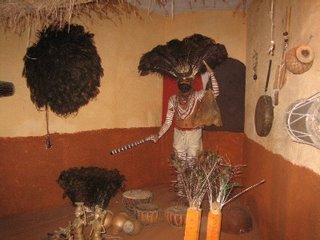



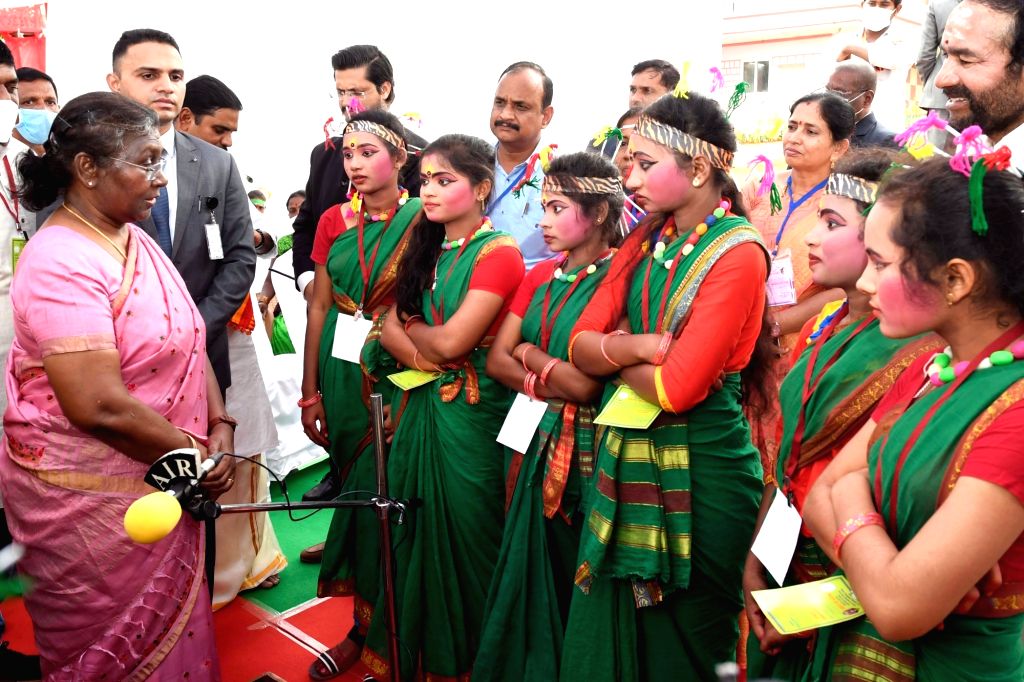





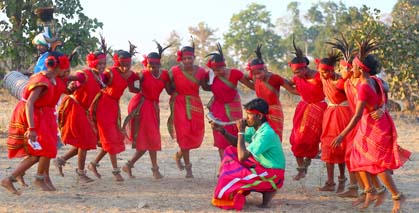












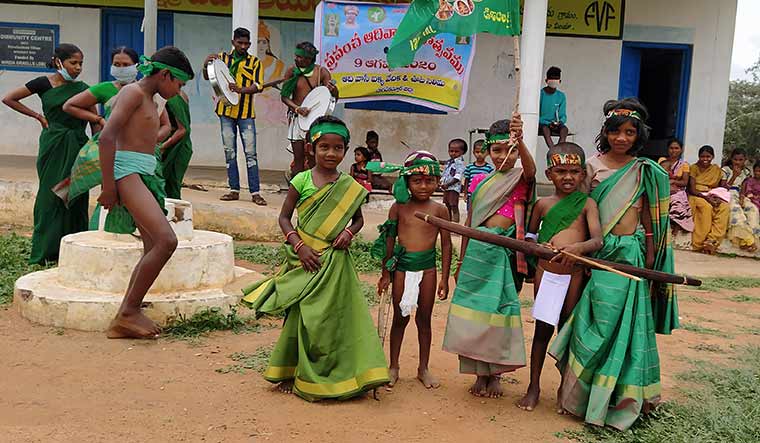
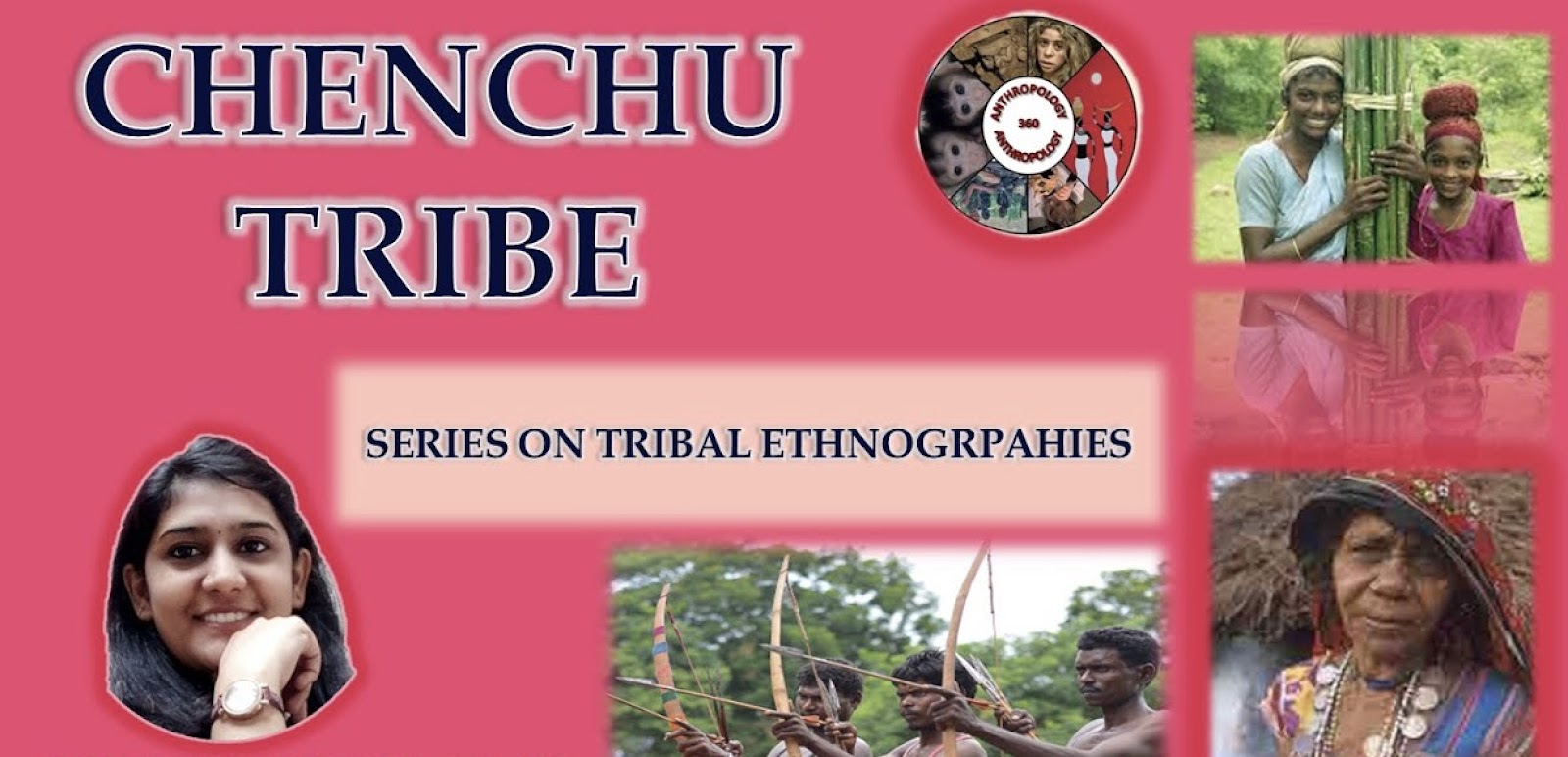



Comments
Post a Comment